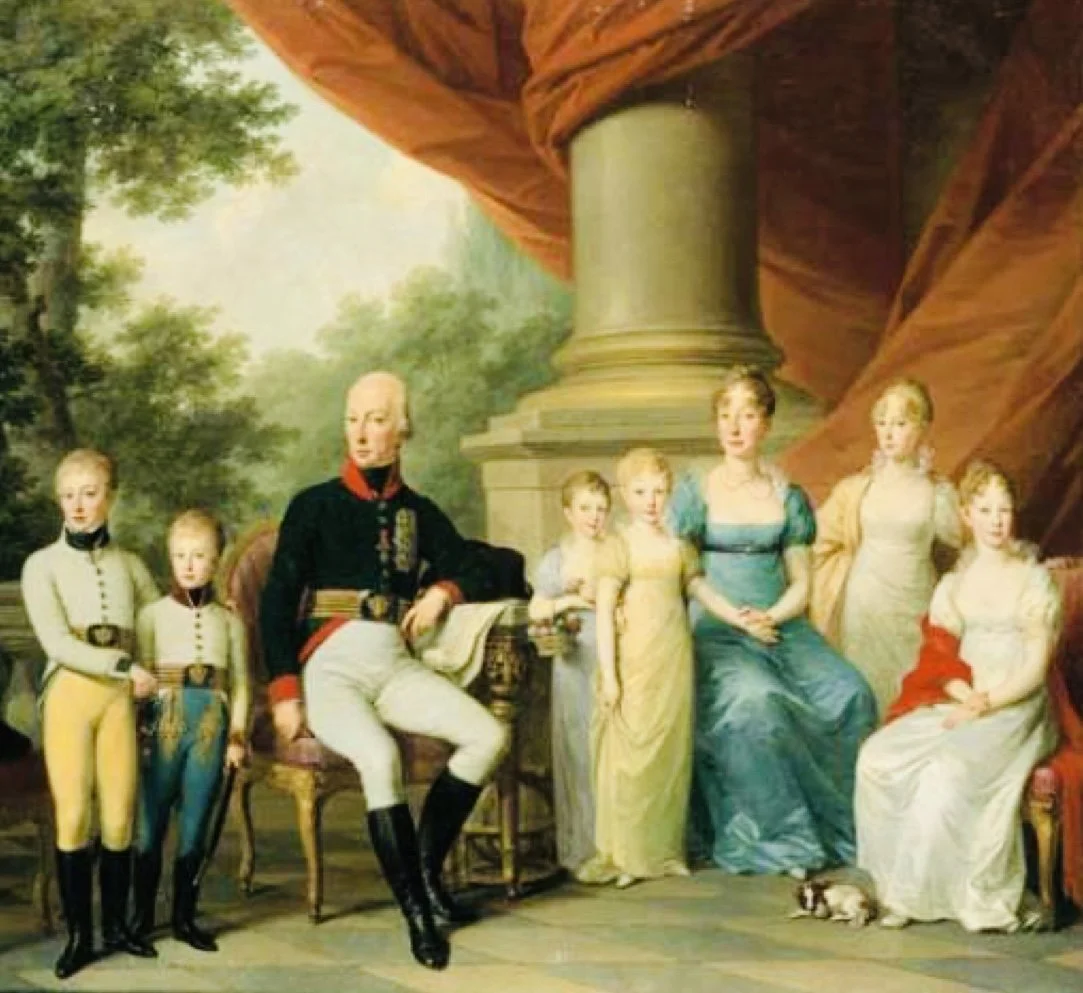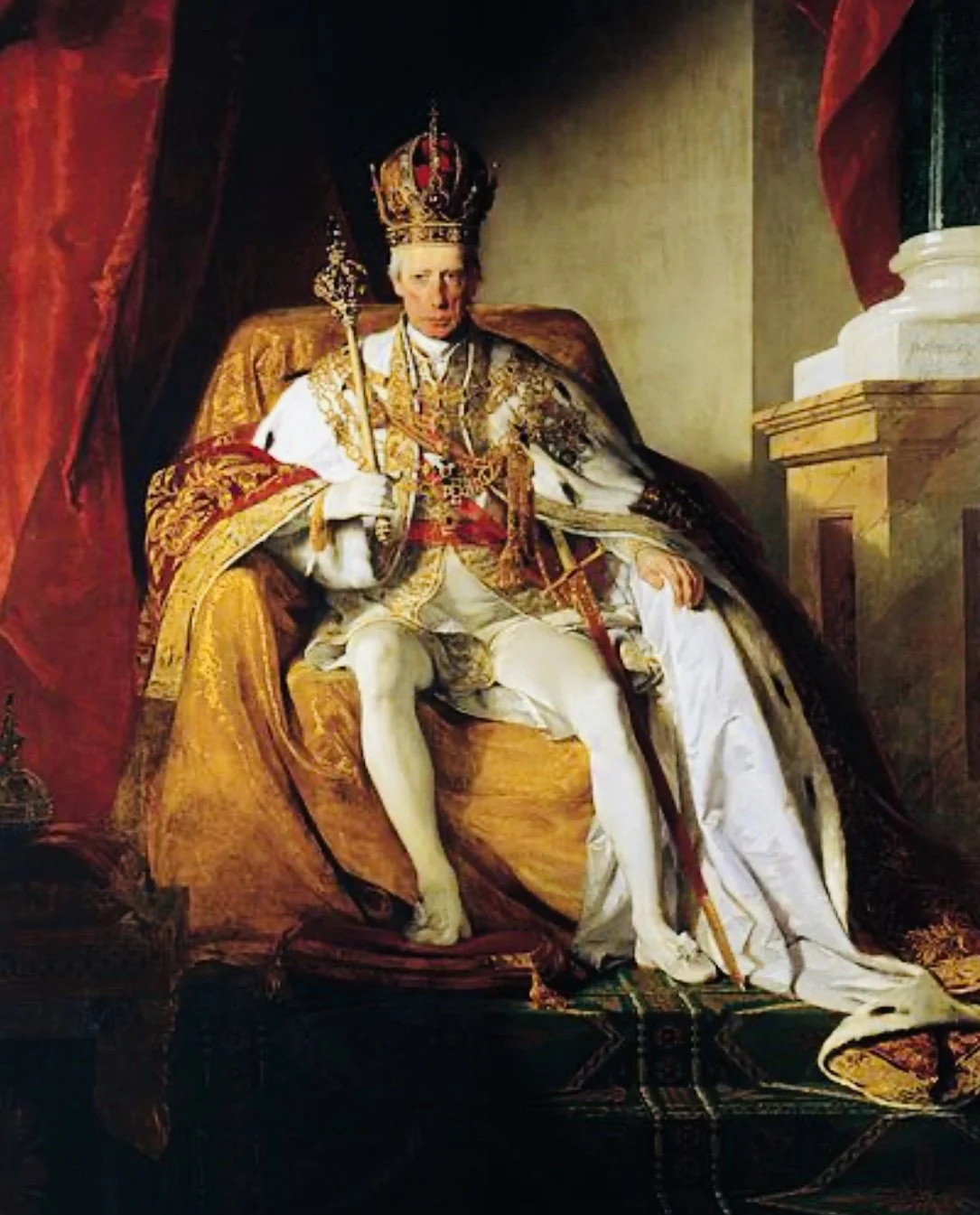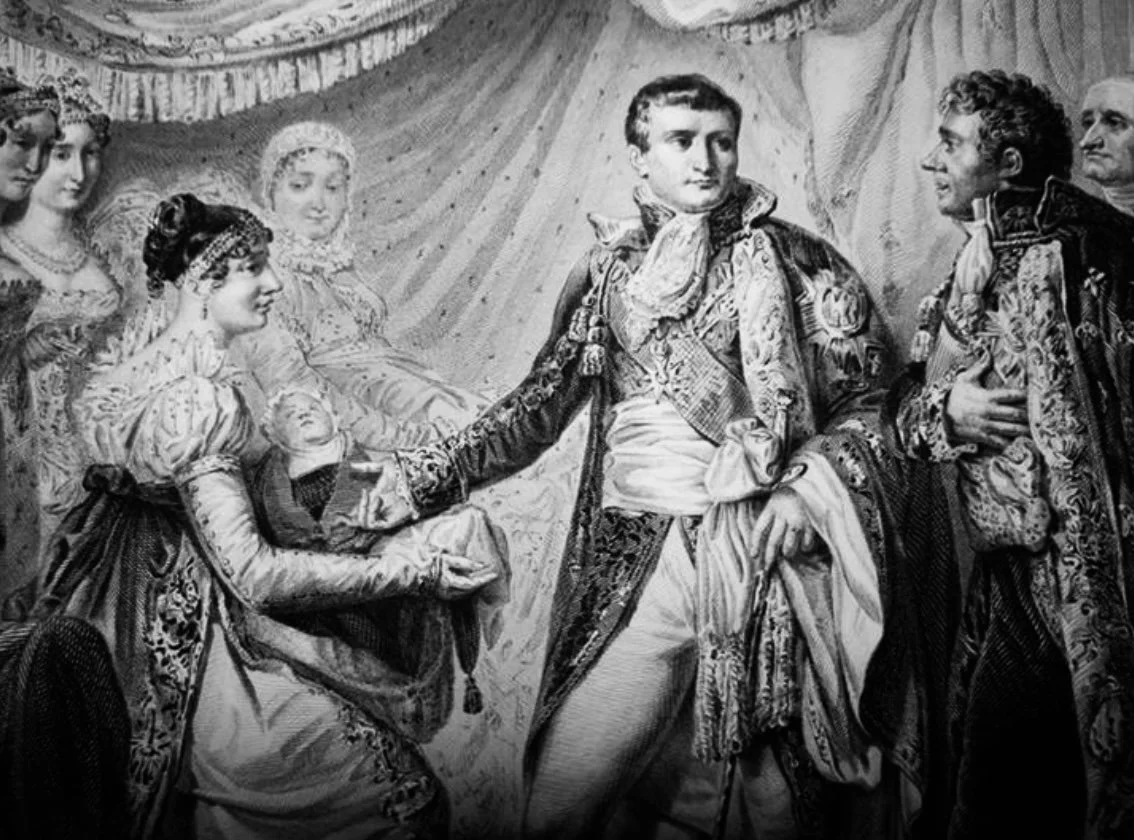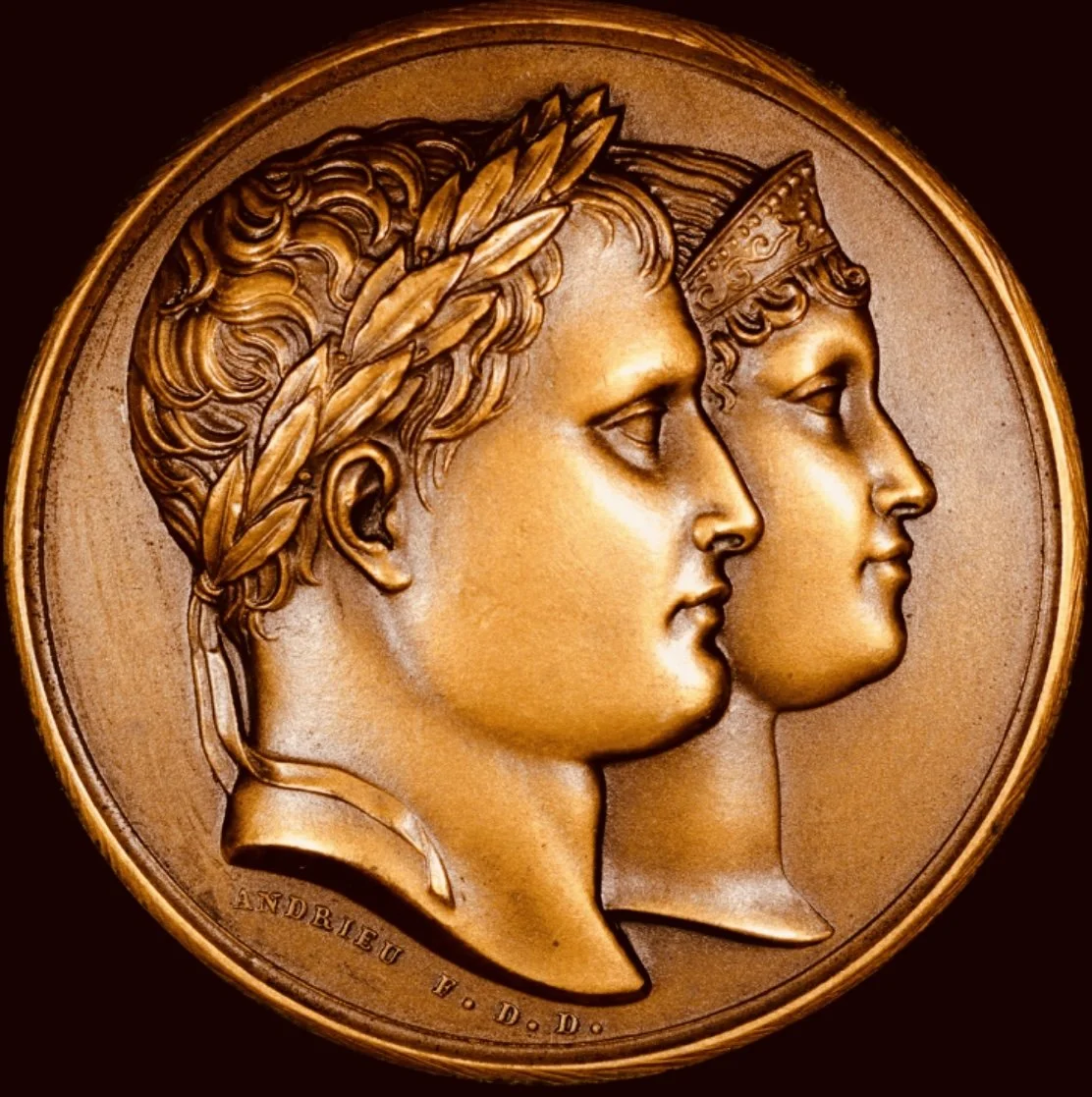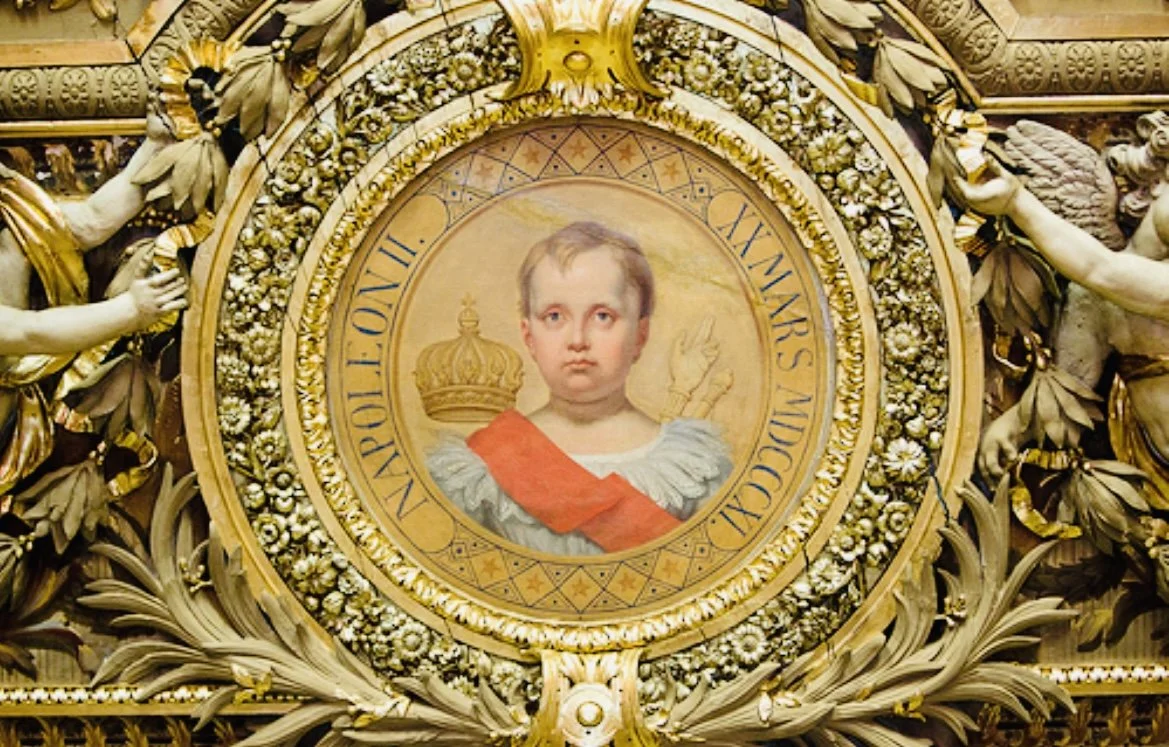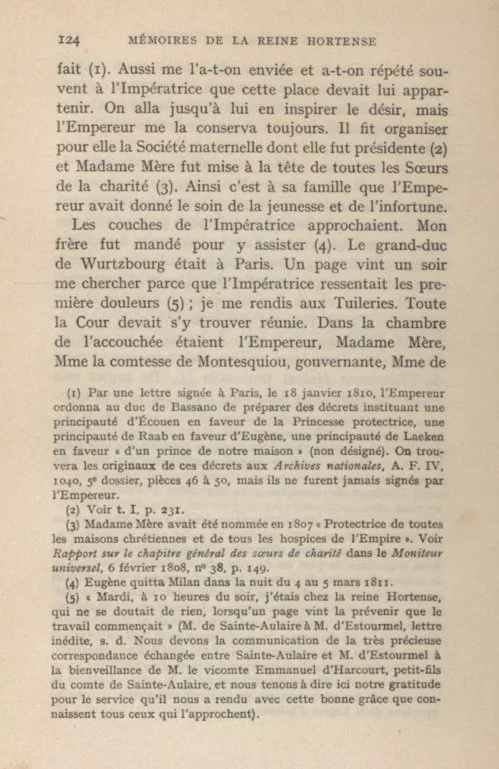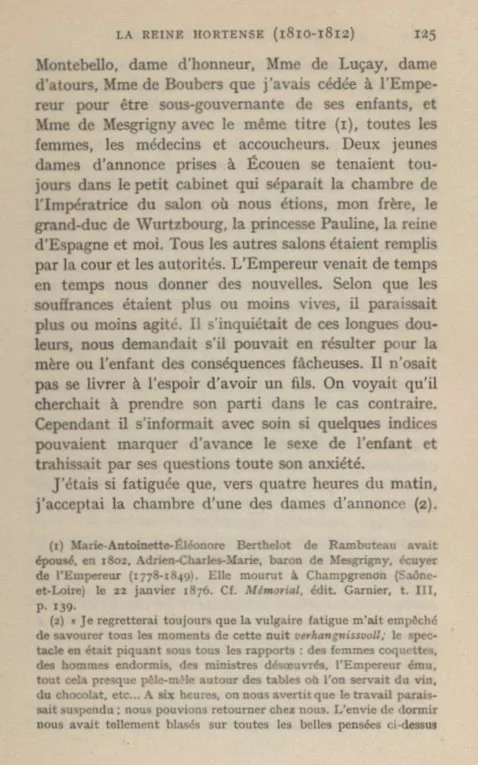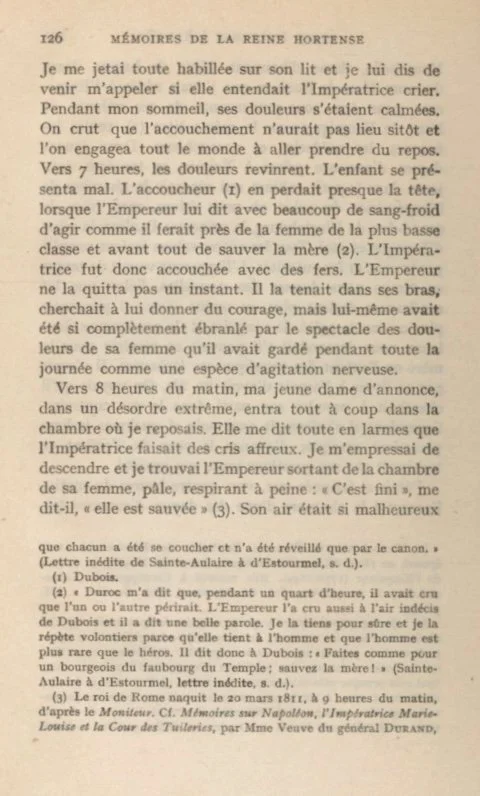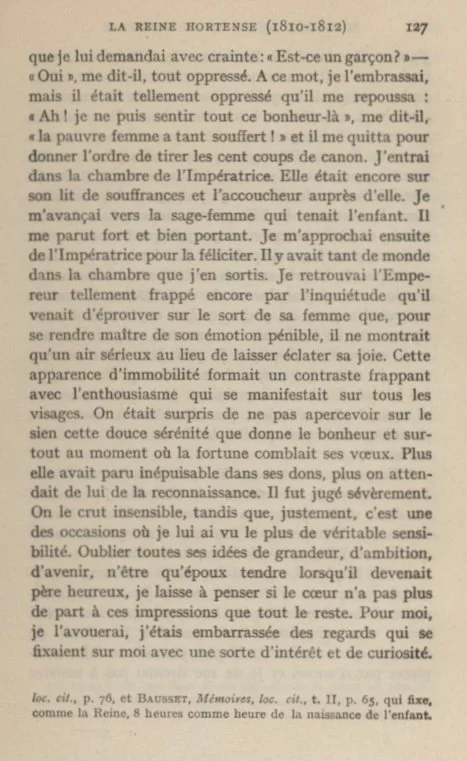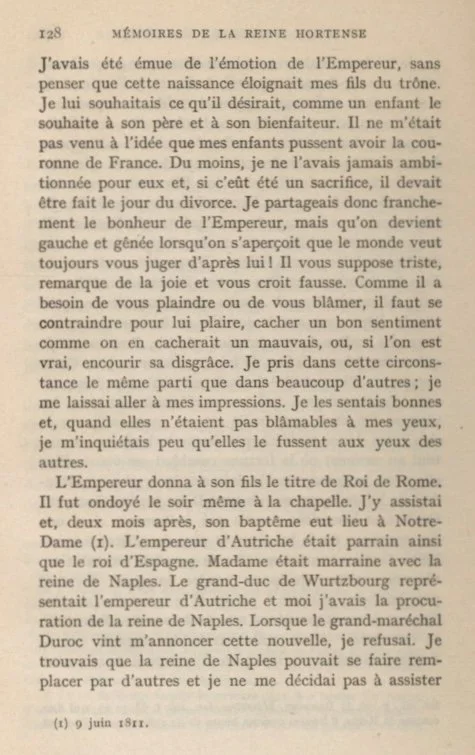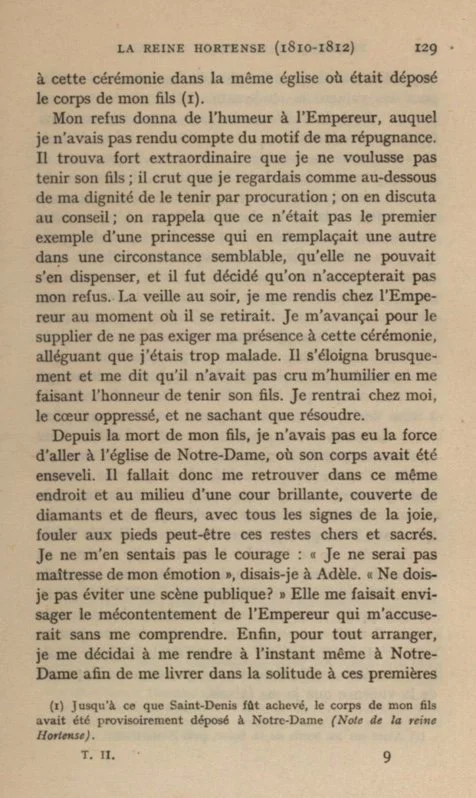Let’s have another look at Hortense’s Memoirs. If you want to read the book it is available for free at the side bar in English and French. Use the widget on the sidebar to translate the text below into pretty much any language.
Hortense explains how Napoleon’s attempts at hiding the depth of his emotions led to misunderstanding by others.
Hortense leaves out what many other memoirists did not of this birth scene. Others reported that Marie Louise was screaming that Napoleon was going to sacrifice her and that Napoleon kept trying to calm her out of this fixed belief of hers.
Why did Hortense leave this out?
Marie Louise’s mother just so happens to have died during childbirth. Her father’s previous wife had also died in the same situation. Marie Louise’s father had four wives in close succession.
Hortense’s memoirs continues:
The time of the Empress's confinement drew near. The Grand Duc de Wurzburg was in Paris. A page came one evening to fetch me because the Empress was feeling the first birth pains.
I hastened to the Tuileries. All the court had assembled there. In the Empress's room there were the Emperor, Madame Mere, Madame la Comtesse de Montesquiou, the governess, Madame de Montebello, chief lady in waiting. Madame de Luçay, lady of the wardrobe, Madame de Boubers, whom I had given the Emperor to be assistant governess to his children, Madame de Mesgrigny, who had the same title, all the women, the doctors and accoucheurs.
Two young dames d'annonce from Ecouen remained in the little cabinet between the bedroom and the drawing-room in which we were my brother, the Grand Duc de Wurzburg, the Princess Pauline, the Queen of Spain and I.
All the other drawing-rooms were filled with members of the court and other officials. The Emperor came in from time to time and told us how things were going. According to whether the pain was more or less acute he seemed more or less nervous.
He was worried that the labor should last so long and asked us whether this might not have unfortunate results for the mother or child. He did not dare to entertain the hope of having a son. It was clear that he was trying to accept the contrary.
Nevertheless, he inquired carefully if there were no signs by which one could tell in advance the sex of the child, and all his questions betrayed his anxiety. I was so tired that about four o'clock I accepted the offer of one of the dames d'annonce to let me use her room." I threw myself, fully dressed, on the bed and told her I was to be called if she heard the Empress begin to scream. During my sleep the pains had subsided. It was believed the delivery would not take place immediately, and everyone was advised to go and rest.
About seven o'clock the pains began again. The child presented itself badly. The accoucheur almost lost his mind when the Emperor calmly told him he should act as he would in the case of a woman of the lowest class and above all try to save the mother. The Empress was therefore delivered with forceps.
The Emperor did not leave her side an instant. He held her in his arms and tried to encourage her, but he himself was so seriously shaken by the sight of his wife's suffering that for the rest of the day he was afflicted with a sort of nervous trembling. About eight o'clock in the morning my dame d'annonce suddenly entered the room where I was resting and told me, with tears, "The Empress is uttering terrible cries."
I hurried downstairs and found the Emperor leaving his wife's room. He was pale and hardly able to breathe. "It is over," he said to me; "she is safe."
He looked so miserable that I timidly asked him, "Is it a boy?"
“Yes," he replied with an effort. On hearing this I embraced him, but he had such difficulty in breathing that he pushed me aside.
“Ah," he said, "I cannot grasp all that happiness. The poor woman suffered so." He left me to give orders to have the hundred cannon shots fired. I entered the Empress's room. She was still on her bed of pain, and the accoucheur was beside her. I approached the midwife who held the child. He appeared to me to be strong and healthy. I next went over to the Empress and congratulated her.
There were so many people in the room that I left. I found the Emperor so deeply moved by the anxiety for his wife which he had just experienced that, in order to master his painful emotion, he assumed a grave air instead of showing his delight.
This serious air contrasted with the enthusiasm everyone else displayed. People were surprised not to find on his features that calm contentment which happiness gives, especially at such a moment when Providence had answered his prayers.
The more complete this answer had been, the more gratitude he was expected to show. His attitude was severely criticized. People thought he lacked feeling, while as a matter of fact it was one of the occasions on which I saw him the most deeply moved. To forget all thoughts of ambition and the future, to remain only a fond husband at the moment when you have become a happy father, surely this shows that the heart has a greater influence than all the rest.
For my own part I confess I was embarrassed by the sympathetic and curious glances I received. The sight of the Emperor's emotion had touched me, and I had not given a thought to the fact that this birth increased the distance which separated my sons from the throne. I had hoped his wishes would be fulfilled, just as a child hopes to see his father or his benefactor contented. The idea that my children might wear the crown of France had not occurred to me.
At least I had never desired them to do so, and if there was any sacrifice to be made, I had made it on the day of the divorce. I therefore sincerely shared the Emperor's joy, but how awkward and embarrassed you become when you see that people judge your conduct in accordance with their own ideas.
People think you should be sad, see that you are happy, and conclude you are a hypocrite. Since strangers feel the need of praising or criticizing you, you are obliged to behave as they wish you to, hide a kind thought as you would conceal an evil one, or, if you are sincere, pay the penalty.
On this occasion I acted as I did frequently; I let myself be swayed by my feelings. I knew they were kindly ones, and from the moment I considered them nothing to be ashamed of, I paid little attention to how they might seem to others. The Emperor gave his son the title of King of Rome. He was baptized privately that same evening in the chapel. I was present, and two months later his public baptism took place at Notre Dame.
The Emperor of Austria and the King of Naples were the godfathers. Madame Mere and the Queen of Naples were the god-mothers. The Grand Duc de Wurzburg represented the Emperor of Austria, and I was to take the place of the Queen of Naples.
When Grand Marshal Duroc came and announced this to me I refused. I felt that the Queen of Naples could have someone else represent her and I did not care to be present at this ceremony held in the same church where my son was buried.
My refusal annoyed the Emperor, to whom I had not explained my reasons. He considered it extraordinary that I would not hold his son at the font. He believed I considered it beneath my dignity to act on behalf of someone else.
The matter was discussed at a cabinet meeting. It was pointed out that it would not be the first time one princess took another's place, that she could not refuse to do so and that my refusal would not be accepted. The evening before the ceremony I called on the Emperor just as he was retiring. I stepped forward to beg him not to insist on my presence at the ceremony, giving as excuse that I did not feel strong enough for it.
He turned away abruptly and said he had not intended to humiliate me when he did me the honor to ask me to carry his son. I returned home, oppressed in spirits and not knowing what course to pursue. Since the death of my son I had not had the courage to enter the church of Notre Dame where his body lay.
It seemed that I must now make my first visit to this place, and in the midst of a brilliant court adorned with all my diamonds, covered with flowers and giving all signs of joy, tread perhaps on that hallowed spot where his bones were lying.
The original French is available below:

